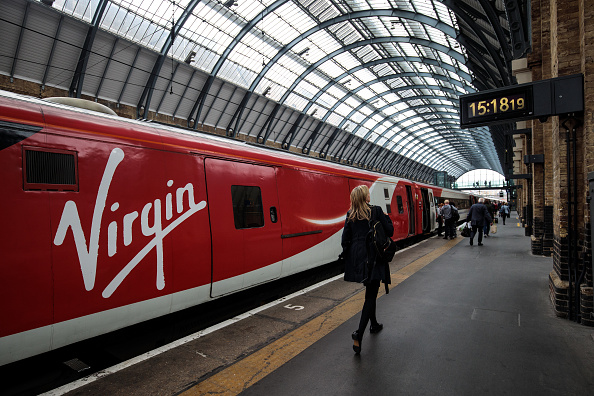Stagecoach profits rise despite UK rail franchise loss

Stagecoach has ruled out future bids for UK rail franchises today once its current operations finish in November.
The transport giant also revealed higher profits for the year to the end of April despite its train business facing an uncertain future.
The figures
Stagecoach’s profit before tax rose 23 per cent year on year to £101.2m from £77.6m the year before for continuing operations.
Adjusted profit before tax climbed 3.5 per cent year on year to £132.9m.
That came despite a revenue tumble that saw sales fall by a third to £1.9bn on the loss of two rail franchises.
Still, the company cut net debt from £395.8m last year to £253.3m this year after collecting $271m (£214m) from the sale of its North America Division last December.
Net cash fell to £124.7m from £208.8m the year before, largely due to working capital movements.
While earnings per share rose to 17.4p from 2018’s 9.6p for continuing operations, total earnings per share fell sharply from 12.3p to 3.8p.
Stagecoach still maintained a full year dividend of 7.7p per share to match that offered in 2018.
Why it’s interesting
Stagecoach is embroiled in a legal row with the Department for Transport (DfT) after transport secretary Chris Grayling disqualified the firm’s attempts to renew its existing East Midlands and West Coast rail franchises.
The DfT said Stagecoach’s bids were not compliant with government terms surrounding rail staff pensions.
Now the department has ruled out future UK rail franchise bids, having also been stripped of its East Coast franchise with Virgin due to increased losses.
“We have no intention to bid for new UK rail franchises on the current risk profile offered by the DfT,” Stagecoach boss Martin Griffiths said.
That means Stagecoach’s UK train services will end in November when its joint West Coast franchise with Virgin Rail finishes.
Instead the business is pivoting towards coach and bus travel to hit future earnings.
Julie Palmer, a partner at Begbies Traynor, said: “With rising costs to operate main routes and growing public negativity around rail operators, this may not be the worst scenario for the business if it focuses efforts on a greater profit margin among its coach and bus operations.
“Nevertheless, the firm will be wary of the growing rhetoric for local authorities to bring transport networks under public control, as recently voiced by Andy Burnham for bus routes in Manchester.
“If this does go ahead, and Stagecoach is unsuccessful in its legal challenge to pitch for rail franchises, it could well derail any recovery plans.”
Nevertheless, Griffiths re-committed to hitting 2019-20 earnings per share guidance.
Stagecoach’s share price rose three per cent to 121p per share.
What Stagecoach said
Stagecoach chief executive Martin Griffiths said:
“I am pleased to report good financial results as we reposition the business. We continue to focus on driving growth at our core high quality bus and coach operations in the UK, but we have no intention to bid for new UK rail franchises on the current risk profile offered by the Department for Transport. We have maintained our expectation of earnings per share for 2019/20.
“We have a critical role to play in tackling climate change and delivering cleaner air for our communities by enabling the switch of more journeys from car to public transport. As well as our significant investments in newer vehicle technologies, including hybrid and electric vehicles, new policy initiatives such as ‘mobility credits’ can help governments meet their ambitious targets.”
More to follow.